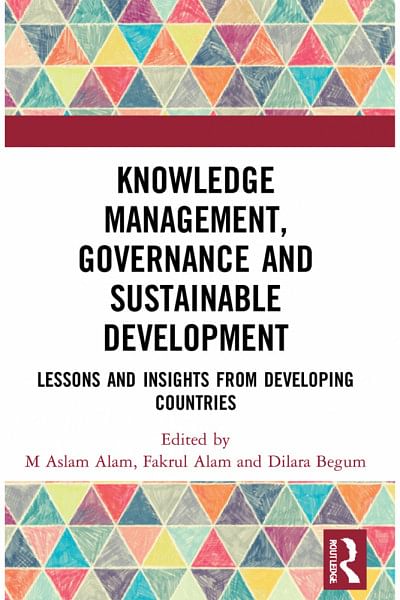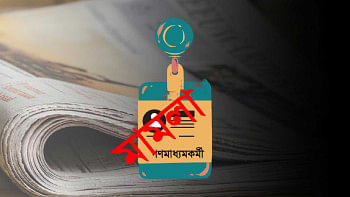An essential read on knowledge management

The book, Knowledge Management, Governance and Sustainable Development: Lessons and Insights from Developing Countries (Routledge, 2020), edited by M Aslam Alam, Fakrul Alam, and Dilara Begum, is indeed a timely endeavour. In the 21st century, civilisation is steadily building towards a society where knowledge will be the main thrust for improvement. This book, examining the importance of governance in knowledge management, considers the impact on human capital and sustainability in the implementation of this relatively recent academic discipline.
'Knowledge management' refers to the creation and utilisation of knowledge as it pertains to an organisation. Knowledge, of course, leads to invention, innovation, modernisation, entrepreneurship, dynamism, and sustainability of the economy. The flourishing of the general public, likewise, to a great extent relies upon good governance, in which knowledge management assumes an imperative part at all levels of public administration. Again, in achieving sustainable development, which is to say finding better ways of doing things both for the present and the future, knowledge management and good governance are mandatory. This book brings these three burning issues under one umbrella, divided into two broad and logical headings.
In the first part, 13 chapters highlight the importance of "Information and Knowledge Management". Duly conversed here are: knowledge-based economies, knowledge management in libraries, transformational leadership, behaviour styles of professionals, knowledge sharing, and information literacy. In the second part, governance nexus sustainable development comes into exploration and discussion. A good number of issues are broadly discoursed—covering, among others, the relationship between growth, poverty, and inequality to comprehend Sustainable Development Goals, digital health information management, capacity building initiatives for the young civil servants in meeting SDGs, and Bangladesh's progress towards attainment of SDGs.
This edited volume by and large reviews the contemporary development of knowledge management and sustainability, as well as the implications of ensuring good governance in public institutions. The effect of leadership on human capital and sustainability is analysed at the macro-level, while issues with both transformational leadership and strategic leadership are reviewed at the micro-level.
The relationship between knowledge management and innovation, and the relationship between innovation and sustainability, are adequately deliberated in this book. These three components, which are firmly interrelated, require inventive exercises (research and innovation) through advanced educational establishments in a joint effort with the private area. Innovation in technology enhances the development of knowledge management system capabilities for organisations of various sizes, while sustainability is turning into a sharp drive for development under the plan of the SDGs being supported by different governments. Such meaningful development activities can be operationalised by the higher education institutions that facilitate knowledge transfer in collaboration with various business organisations and other stakeholders around the world.
I applaud Dr M Aslam Alam, Professor Dr Fakrul Alam, and Dr Dilara Begum for their commendable academic work. It is thought-provoking, insightful, and an essential read for students of library science, political science, public policy, governance, sociology, anthropology, environmental science, and international relations.
Dr Mohammad Tarikul Islam is an Associate Professor of Government and Politics at Jahangirnagar University. He has been a Visiting Scholar at the University of Oxford, the University of Cambridge and SOAS (University of London).

 For all latest news, follow The Daily Star's Google News channel.
For all latest news, follow The Daily Star's Google News channel. 



Comments